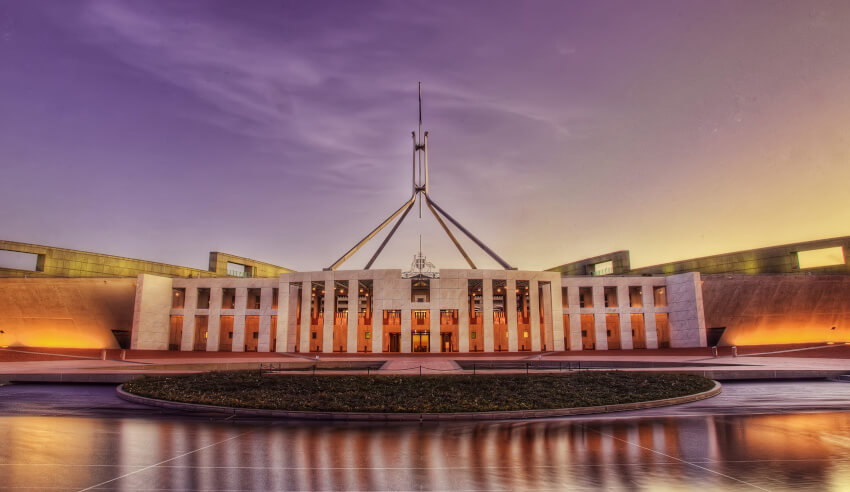I have always understood advocacy as working to bring about change for the better – defending the rights of the disadvantaged impacted because of poor policy. But when is advocacy for change not good, and when should we rally against what will be harmful, asks Michael Connory.

If we are prepared to accept the former head of Australia’s Cyber Security Research Centre, Rachael Falk’s call to give government the ability to spy on Australians, then our rights to freedom will be severely compromised – we will have declared ourselves “fair and open game”.
And that is exactly what Ms Falk is asking of Australians. She is asking us to open that door and walk down a passage of no return – where government can spy without restriction and exercise disturbing control.
Last week, Ms Falk wrote in a major Australian newspaper a piece entitled “Encrypted Messages Favour the Worst of the Worst”. It’s a piece that should have sparked concern for all who read it because of its very proposition.
Ms Falk is one of Australia’s most highly respected cyber security experts, she is a lucid thinker with great insight into cyber security, which in the past five years, has exploded with such force, it has blown the sides out to show how dramatically the world has changed since 2015.
The cyber world is an evolving realm, a phenomenon we are still coming to terms with and yet, there are some who are prepared to hand over the farm because they are afraid of the unknown.
Ms Falk’s view is an interesting commentary by someone who should know better. What she proposes is a declaration of war against our freedom and our rights.
Handing over all that we value based on an argument full of fear and emotion, manufactured by government to give credibility to new potential legislative powers it knows won’t see the light of day is an old political ploy to “create fear to introduce a new law without backlash.”
Ms Falk is right when she says, “Criminality exists whether we can see it or not. Whether it occurs in the digital bad lands or over the back fence shouldn’t make a difference to the protections we expect, and yet we wouldn’t respect the privacy of a neighbour whose home was turned over due to producing meth or child pornography, so we shouldn’t respect the privacy of our digital neighbours, and therein lies the problem, we are naively asking the government and its agencies to behave and respect the privacy of all Australians.”
That expectation is too far great a leap to take. Once government has legislative powers to monitor Australians, regardless of whether they are terrorists or not, Australians will always be under surveillance. No assurance can be given by government it won’t use its powers to spy – the temptation to abuse is far too great to resist.
Past experience has taught us governments can’t be trusted not to abuse the powers they have, so it is naive for Ms Falk to suggest “It is possible to live in a safer world that gives you the same convenience without compromising on security, and without needing to give law enforcement agencies untrammelled authority to snoop.”
Regardless of how Ms Falk argues why it’s important to give government greater monitoring powers, the reality is, we are not living in a world where police are no longer patrolling the streets or where the city is the home of the worst of the worst… we are in a world where the police, the people who are there to protect us are using our information against us illegally.
Why government can’t be trusted not to abuse the powers afforded to it has been clearly demonstrated by the ACT Police. Recently, the ACT Police were caught illegally accessing the metadata of Capital Territorians more than 3,365 times.
And how did they justify their actions? Their response was to allege of the 3,365 illegal intercepts 240 where referred to case officers for further investigation.
The CEO of the Australian Criminal Intelligence Organisation, Michael Phelen, last week at the National Press Club, admitted police “take terabytes of information.” He further added that in Australia, when information is accessed, “there is no such thing as privacy. “At the moment it’s all taken” referring to data accessed by law enforcement.
If this form of unfettered abuse as demonstrated by the ACT Police is given to all governments, then it makes a mockery of Ms Falk’s claims, that our information won’t be misused, and “breaking encryption would forever invite the government into everyone’s bedroom or boardroom.” This already has occurred and will possibly be even worse.
Advocacy for change is good but not when it compromises the very basis of our freedom. Ms Falk is invoking fear and the threat of the unknown. The truth is, government should never have legislative powers to spy on its citizens, and Australia continues to remain a very safe country.
Michael Connory is the CEO of Security In Depth.